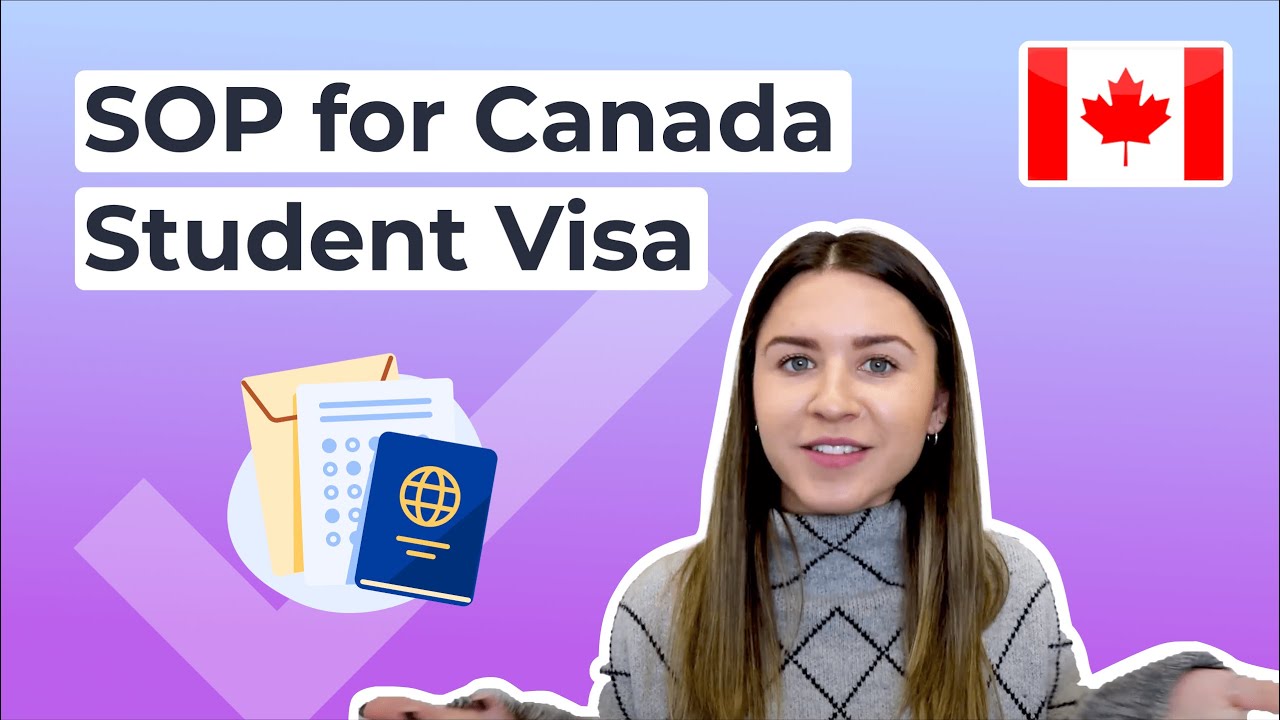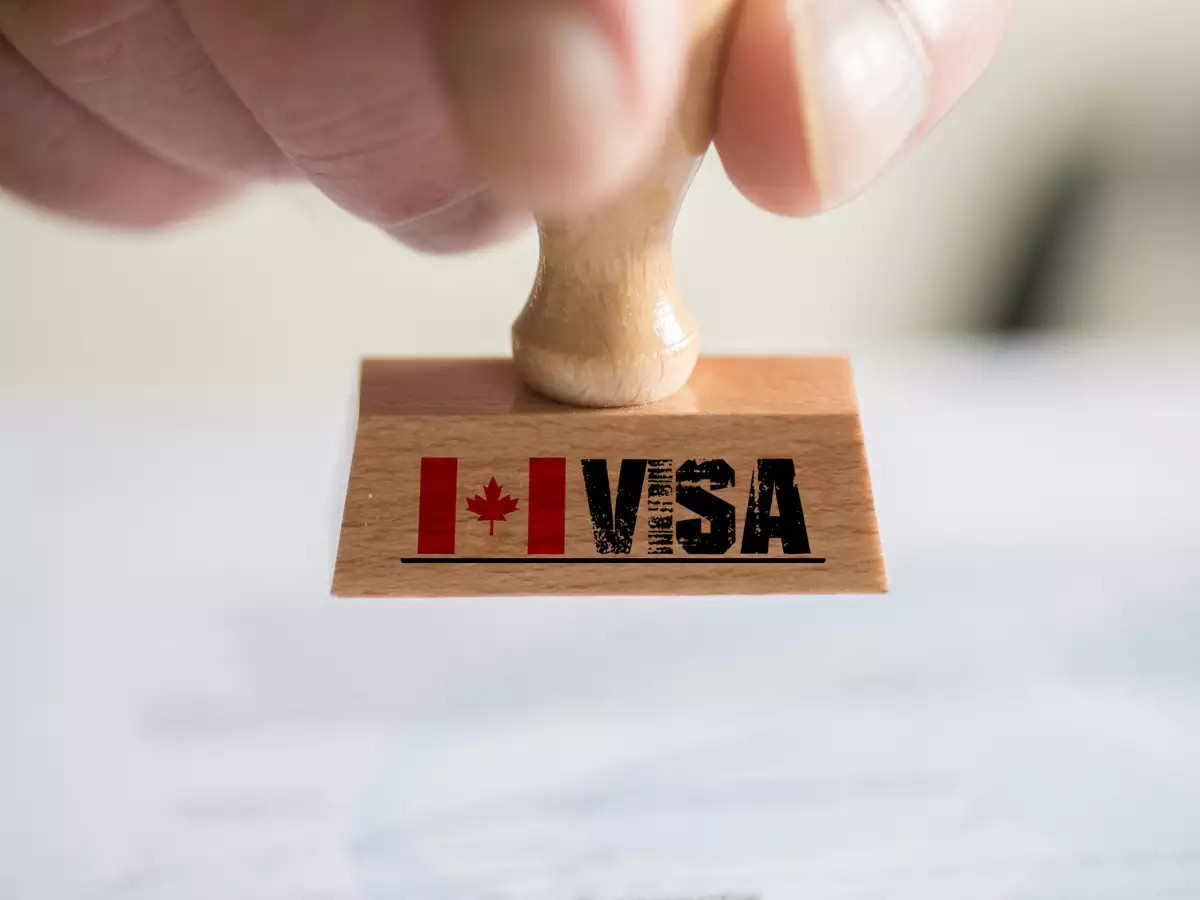Canada Student Visa, Securing approval for your Canada study visa can be significantly enhanced by focusing on key factors. It is crucial to understand the pivotal elements that contribute to visa approval. Timely submission of your application, accurate completion of forms, and the development of a well-thought-out study plan detailing your choice of Canada as your study destination are paramount. This article highlights essential tips aimed at maximizing your chances of obtaining approval for your study visa.
A Temporary Resident Visa (TRV) or Canada Visitor Visa is an official endorsement in your passport granting permission from airlines to board a plane and from Canadian authorities to enter the country at the designated port of entry. The TRV serves as confirmation that you have fulfilled the necessary criteria for admission into Canada, whether as a visitor, student, or worker. Therefore, it is imperative to submit a TRV application to Immigration, Refugees, and Citizenship Canada (IRCC), which will issue this document prior to your arrival in Canada.
Temporary residents Refusals overview:
If an applicant is found to be ineligible, the application will be refused, and the student visa refusal will be made at one of the following times:
- After examination of a written application, without the candidate having an in-person interview,
- following an interview with the visa applicant
If it is apparent upon reviewing the application that the applicant is ineligible, and obtaining additional information would not influence the decision to deny, the applicant should not be required to attend an interview.
Ground for Refusal:
Applications may face rejection if the foreign national fails to meet the obligations outlined in the Immigration and Refugee Protection Act and its Regulations. The IRCC officer must be convinced that the foreign national will depart by the end of the authorized stay period. Grounds for inadmissibility, as stipulated by the Act, encompass issues related to security, human or international rights violations, criminality, organized crime, health concerns, financial reasons, misrepresentation, non-compliance with the Act, and inadmissible family members.
The application process for a Canada student visa stands out as the most challenging component of your strategy to pursue studies in Canada. It’s crucial to note that a study permit is distinct from a visa and does not grant permission to travel to or enter Canada. While citizens of some countries are exempt from requiring a visa, the majority of international students must obtain a Canada Study permit before finalizing their travel arrangements. Upon approval, the IRCC will issue both your visitor visa and study permit.
Applicants must carefully observe and comply with the precise requirements set by the IRCC visa officer; failure to do so could result in challenges entering Canada in time for the designated study program. Demonstrating the intention to depart Canada upon the expiration of the study permit is a crucial eligibility criterion for a Canada Student permit, and it must be convincingly proven to the immigration officer.
IRCC officers grant student visas to candidates they deem genuine and who furnish the necessary supporting documents as per the requirements. Hence, it is crucial to comprehend the reasons for potential refusals. The following is a list of key tips to bear in mind before applying for a Canada student visa, aiming to facilitate the application process.
1-Statement Of Purpose (SOP) for Canada Student Visa

IRCC mandates that applicants from the majority of countries include a Statement of Purpose (SOP) with their study permit application. The SOP should constitute a concise essay elucidating your reasons for choosing a particular educational institution in Canada over potentially more affordable neighboring countries. It should also outline the skills you aim to acquire during your study program in Canada and articulate your employment plans after your studies in Canada.
The significance of your Statement of Purpose (SoP) cannot be overstated when applying for a Canada student visa. An inadequately composed SoP is unlikely to support your visa application, whereas a thorough and well-crafted Statement of Purpose carries considerable weight in securing a Canada study permit. While seeking guidance from a Registered Canadian Immigration Consultant (RCIC) is an option, it is imperative to ensure that the content is authentically expressed in your own words and is highly persuasive.
2-Enough Funds for Student Visa to Canada

Studying abroad comes with a significant cost, and optimizing the use of your or your parents’ finances is crucial. Your ability to financially support your studies in Canada is a key factor in your application for a Canada Study Permit. It is essential to account for expenses such as tuition fees, living costs for yourself and any dependents, travel expenses, visa fees, and other miscellaneous costs. Therefore, it is imperative to effectively demonstrate that you possess ample funds in your bank account(s) to cover these expenses, presenting a positive outlook on your Canada student visa application.
3- Ties To Home Country
Individuals applying for Canada Temporary Resident Visas (TRVs), including Canada study visas, are initially perceived as “intending immigrants,” implying a desire to establish permanent residence in Canada until they can convince IRCC officers otherwise. International students must, therefore, demonstrate compelling reasons to return to their home countries that outweigh any inclination to remain in Canada. It is essential for them to convey a clear intention to depart Canada either at the conclusion of their authorized stay or after completing their studies.
The concept of “ties” to your home country encompasses connections to your hometown, homeland, or current place of residence, including factors like employment, family, financial interests, and potential investments. Each individual’s situation is unique, and there is no singular document, certificate, or letter that guarantees the issuance of a Canada student visa.
For instance, if you’ve applied for a Canada PR visa with an intention to immigrate, you must provide justification for your TRV application. Additionally, if you have close relatives who are Canadian citizens or permanent residents (Canada PR), demonstrating that you are not an intending immigrant may pose a greater challenge.
4-Choose the Program that Fits Your Career Plans

Failure to articulate the reasons for selecting a specific program in Canada may hinder your ability to convince the IRCC officer of your genuine intent to study rather than work or establish permanent residency in Canada. It is essential to provide a clear explanation of how your studies in Canada align with your career goals and how they will contribute to your ability to secure employment upon your return home.
5- Be concise
Owing to the high volume of applications received by IRCC, visa officers face substantial time constraints for timely application reviews. Decisions are often based on the impressions formed within the first minute or two of their assessment. The success of your application relies significantly on your study plan and the initial impression conveyed through your visa application. It is crucial to keep your responses to IRCC’s questions concise, direct, and precisely aligned with the posed inquiries.
6- Employment Plan
The primary purpose of your visit to Canada should be for educational pursuits, with employment before or after graduation considered secondary. Although many students engage in on or off-campus work during their studies, such employment is optional and secondary to the primary objective of completing their education at a Canadian institution. It is essential to explicitly articulate your intention to return home after completing your study program.

7-Dependents remaining in the home country
If your spouse and children remain in your home country, be prepared to elucidate how they will sustain themselves while you are in Canada. This explanation can be particularly challenging if you are the primary source of income for your family. If the IRCC officer suspects that you plan to support your family with funds earned during your studies in Canada, your study permit application is likely to face rejection. While it can be beneficial for your family to apply alongside you, it is not always mandatory, especially if they plan to join you later. Both scenarios should be clearly explained in your Canada student visa application From Dubai.
8- English or French Language Test Result
If you are a legal resident of certain eligible countries, you have the option to apply for a Canada student visa through the Student Direct Stream (SDS). To qualify, you must meet specific eligibility criteria, which include providing evidence of a valid language test result. The SDS process aims to issue study permits within 20 calendar days. The SDS application must be completed within two years of the IRCC receiving it, and it requires either an IELTS score of 6.0 or higher in each language skill or a TEF score equivalent to a Canadian Language Benchmarks (CLB) score of at least 7 in each ability.
If you don’t have the language result or are not a resident of those countries, IRCC will review it as a regular study permit.
9- ESL or FSL study programs
If you intend to enroll in English as a Second Language (ESL) or French as a Second Language (FSL) courses, or if prerequisite classes are required, you must possess a conditional letter of acceptance. In cases where you are taking a prerequisite class or a bridging program lasting at least six months, your letter of acceptance should explicitly identify the class or program as a prerequisite or bridging program. It’s essential to note that your primary study program must be a degree, diploma, or certificate.
10- Different Requirements for Different Countries
Applicants hailing from economically challenged countries or nations where a substantial number of students have opted to stay in Canada as immigrants may encounter increased challenges in obtaining visas. Statistically, individuals from these countries are more prone to having intentions of permanent residence in Canada. It is advisable to visit the IRCC website to carefully review the specific requirements applicable to your country.
11- Supporting documents

The IRCC visa officer should quickly comprehend the written documents you submit and their significance. Lengthy explanations are not conducive to swift reading and evaluation, given the limited review time, typically 2-3 minutes, if you’re fortunate. As supporting documentation requirements depend on your specific situation, it is advisable to refer to the IRCC’s website. However, common supporting documents shared by all students include financial plan documents, travel purpose documents, letters of acceptance, employment letters, and similar documents.
12-Hiring an Immigration Consultant (RCIC)
Engaging the services of an RCIC (Regulated Canadian Immigration Consultant) can significantly simplify your immigration journey to Canada. RCICs possess expertise in immigration law and can provide guidance on addressing concerns raised by IRCC officers. This invaluable information can aid you in selecting the most suitable type of program for your immigration goals.
Moreover, RCICs can help you identify the optimal educational institution that offers the desired program within your budget. They can also provide assistance with other crucial day-to-day information that will be beneficial when you arrive overseas.

How Can We Help You To Get A Canada Student Visa?
At Canserves, if you are seeking to apply for a Canada Student Visa, we offer comprehensive assistance, guiding you through the entire process—from completing immigration forms to ensuring all necessary supporting documents are in order. We provide professional advice tailored to your specific needs, enhancing the likelihood of your study visa approval. As an authorized representative, we take the responsibility of submitting your study visa application to IRCC on your behalf. Here are the details of our professional services designed to secure your conference visa:
